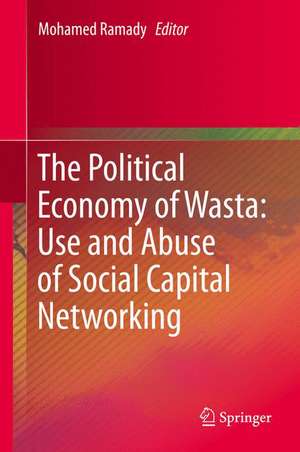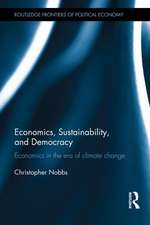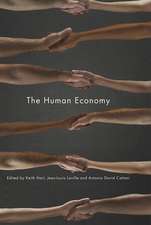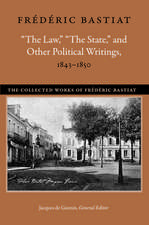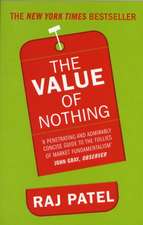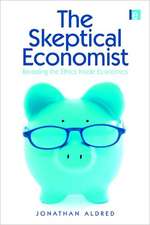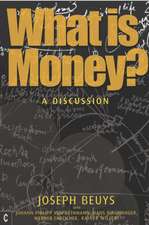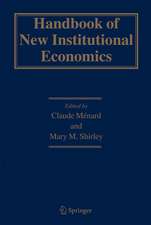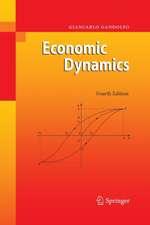The Political Economy of Wasta: Use and Abuse of Social Capital Networking
Editat de Mohamed A. Ramadyen Limba Engleză Hardback – 30 noi 2015
By its very nature ‘wasta’ is an area of grey or even black information, and, like corruption to which it is most often associated, is hard to assess although country corruption perception indexes attempt to provide a quantifiable basis. In the final analysis such ratings are based on perceptions of corruption, and this perception may vary strongly depending on different societal structures and cultural modes, whether these are extended family systems, tribal, clans or more atomized societies where relationships are essentially transactional and rule based. In a western perspective where ‘wasta’ may be considered as a form of corruption, in other societies it may be perceived as something ‘natural’ and not criminal, and using one's ‘wasta’ in tribal societies to help clan members is seen as a duty. The difference stems from the 'innocent ' use of ‘wasta’ to make introductions, as opposed to its abuse in placing unqualified persons in positions .The volume brings together academics and professional experts to examine a range of multi-faceted social, economic and political issues raised by the use and abuse of social networking, covering various topics like:
- ‘wasta’ interpersonal connections in family and business ties,
- The relationship between inequality-adjusted human development and corruption perception indexes in the Gulf region,
- ‘wasta’ and business networking, assessing the economic cost of ‘wasta’,
- ‘wasta’ and its impact on quality oriented education reform and the perceptions of young people,
- The use of ‘wasta’ to overcome socio-cultural barriers for women and men
Mohamed Ramady is a Visiting Associate Professor, King Fahd University of Petroleum and Minerals, Saudi Arabia.
| Toate formatele și edițiile | Preț | Express |
|---|---|---|
| Paperback (1) | 638.11 lei 6-8 săpt. | |
| Springer International Publishing – 23 aug 2016 | 638.11 lei 6-8 săpt. | |
| Hardback (1) | 644.49 lei 6-8 săpt. | |
| Springer International Publishing – 30 noi 2015 | 644.49 lei 6-8 săpt. |
Preț: 644.49 lei
Preț vechi: 758.23 lei
-15% Nou
Puncte Express: 967
Preț estimativ în valută:
123.34€ • 128.60$ • 102.51£
123.34€ • 128.60$ • 102.51£
Carte tipărită la comandă
Livrare economică 20 martie-03 aprilie
Preluare comenzi: 021 569.72.76
Specificații
ISBN-13: 9783319222004
ISBN-10: 3319222007
Pagini: 350
Ilustrații: XLIII, 204 p. 18 illus., 16 illus. in color.
Dimensiuni: 155 x 235 x 22 mm
Greutate: 0.53 kg
Ediția:1st ed. 2016
Editura: Springer International Publishing
Colecția Springer
Locul publicării:Cham, Switzerland
ISBN-10: 3319222007
Pagini: 350
Ilustrații: XLIII, 204 p. 18 illus., 16 illus. in color.
Dimensiuni: 155 x 235 x 22 mm
Greutate: 0.53 kg
Ediția:1st ed. 2016
Editura: Springer International Publishing
Colecția Springer
Locul publicării:Cham, Switzerland
Public țintă
ResearchCuprins
Part I.- Wasta as social capital.- Wasta as a form of Social Capital from an institutionalist perspective.- Wasta social network concept of interpersonal connections in family and kinship ties.- Wasta: is it such a bad thing? An anthropological perspective.- Part II .- Wasta in different work environments.- Western and Eastern wasta application.- The Economic Cost of Wasta - An Empirical Approach.- Saudi female work progression: the use of wasta to overcome cultural barriers.- Part III.- Wasta and education sector and youth work and career aspirations.- The impact of wasta on entrepreneurship development.- Part IV.- Wasta and business relationships.- The relationship between the Inequality-adjusted Human Development Index and the Corruption Perception Index in GCC major economies.- Use of wasta in international development projects.- Wasta; does this represent a viable paradigm for business networking?.- Conclusions.- Bibliography.- Index.
Notă biografică
Mohammed Ramady is a Visiting Associate Professor, King Fahd University of Petroleum and Minerals, Saudi Arabia.
Textul de pe ultima copertă
The term ‘wasta’ stems from the Arabic root for ‘middle’ or ‘medium' and describes the phenomenon of using ‘connections’ to find job, government services or other favors to circumvent bureaucracy or bypass the system as a whole. The effects of ‘wasta’ may be both positive or negative, and is not a phenomenon that is particular to the Arab or Muslim world, but also to many other cultures and regions of the world, with similar concepts popularly known as ubuntu, guanxi, harambee, naoberschop, or “old boy network” used in African, Chinese and European societies.
By its very nature ‘wasta’ is an area of grey or even black information, and, like corruption to which it is most often associated, is hard to assess although country corruption perception indexes attempt to provide a quantifiable basis. In the final analysis such ratings are based on perceptions of corruption, and this perception may vary strongly depending on different societal structures and cultural modes, whether these are extended family systems, tribal, clans or more atomized societies where relationships are essentially transactional and rule based. In a western perspective where ‘wasta’ may be considered as a form of corruption, in other societies it may be perceived as something ‘natural’ and not criminal, and using one's 'wasta ' in tribal societies to help clan members is seen as a duty. The difference stems from the 'innocent ' use of 'wasta' to make introductions, as opposed to its abuse in placing unqualified persons in positions .The volume brings together academics and professional experts to examine a range of multi-faceted social, economic and political issues raised by the use and abuse of social networking, covering various topics like:
- ‘wasta’ interpersonal connections in family and business ties,
- The relationship between inequality-adjusted human development and corruption perception indexes in the Gulf region,
- ‘wasta’ and business networking, assessing the economic cost of ‘wasta’,
- ‘wasta’ and its impact on quality oriented education reform and the perceptions of young people,
- The use of ‘wasta’ to overcome socio-cultural barriers for women and men
Mohamed Ramady is a Visiting Associate Professor, King Fahd University of Petroleum and Minerals, Saudi Arabia.
Caracteristici
Investigates the implications of a political and economic system that relies significantly on reciprocity and cronyism Analyzes the effects of wasta on the education and labor market within GCC countries Examines the social and cultural foundation of wasta within specific cultural paradigms of the Middle East
